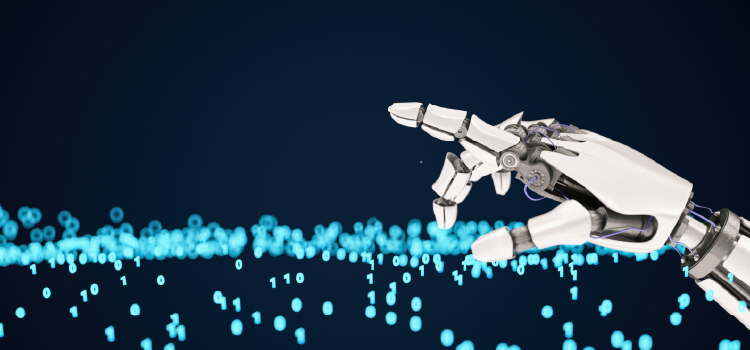Introduction:
In today’s hypercompetitive business environment, organizations are under constant pressure to innovate, improve efficiency, and reduce operational costs. Robotic Process Automation (RPA) has served as a valuable first step, addressing repetitive and rule-based tasks. However, true digital transformation requires more than automating isolated processes, it demands an enterprise-wide hyperautomation strategy that orchestrates multiple technologies to streamline complex, end-to-end business operations.
Mphasis is at the forefront of this transformation, empowering enterprises to move beyond simple RPA and embrace hyperautomation for sustainable growth, scalability, and resilience.
Challenges
Many organizations that adopt Robotic Process Automation (RPA) encounter significant limitations when trying to scale automation across the enterprise:
1. Siloed Automation Initiatives
Organizations often deploy automation at the departmental level, leading to fragmented solutions that lack enterprise-wide visibility. Without alignment across business units, automation efforts remain disconnected and fail to drive strategic outcomes.
2. Limited Scalability
Initial RPA implementations can deliver quick wins, but scaling automation across hundreds of processes and systems exposes architectural and governance challenges. Without a unified strategy, enterprises struggle to move beyond isolated pilots.
3. Lack of Integration Across Systems
Enterprises typically operate on complex IT landscapes with legacy systems, cloud platforms, and multiple third-party solutions. RPA bots alone cannot integrate these diverse ecosystems seamlessly, resulting in data silos and broken process flows.
These challenges underline the need for a holistic automation approach that transcends traditional RPA, enabling comprehensive digital transformation.
Mphasis’s Approach
Mphasis addresses these challenges through a unique hyperautomation framework that combines advanced technologies, strategic consulting, and governance best practices:
1. Combining AI, ML, NLP, GenAI and Process Mining for Comprehensive Automation
Mphasis integrates Artificial Intelligence (AI), Machine Learning (ML), Natural Language Processing (NLP), and process mining to automate complex, decision-based processes. By analyzing data patterns, identifying automation opportunities, and continuously optimizing workflows, Mphasis creates intelligent automation ecosystems that go far beyond basic task automation.
● AI & ML: Enable predictive analytics, adaptive learning, and intelligent decision-making within automated processes.
● GenAI & NLP: Facilitates the automation of unstructured data processing, such as emails, documents, and customer queries.
● Process Mining: Provides deep visibility into existing workflows, uncovering inefficiencies and prioritizing high-impact automation opportunities.
2. Implementing Platform-Agnostic Solutions for Seamless Integration
Recognizing the diversity of enterprise IT environments, Mphasis employs a platform-agnostic approach that integrates automation tools across cloud, on-premise, and hybrid systems. This flexibility ensures that automation solutions work harmoniously with existing infrastructure, protecting prior technology investments while maximizing ROI.
3. Establishing Centers of Excellence (CoE) to Drive Governance and Scalability
Mphasis helps enterprises set up Automation Centers of Excellence, which provide centralized governance, standardized practices, and continuous improvement frameworks. These CoEs ensure that automation initiatives are aligned with business objectives, properly governed, and able to scale efficiently across the organization.
Case Study: Hyperautomation in Action – Automated Model Selection & Forecasting
A global supply chain and logistics company faced growing complexity in managing its demand forecasting processes. With fluctuating market conditions, seasonal variations, and unpredictable customer behaviors, the organization struggled to generate accurate forecasts using traditional models. Forecast inaccuracies led to inventory imbalances, increased operational costs, and missed revenue opportunities.
The Mphasis Solution
The company partnered with Mphasis to implement an automated model selection and forecasting solution powered by hyperautomation. The approach involved:
● Automated Data Ingestion: Leveraging intelligent data pipelines to gather structured and unstructured data from multiple sources.
● AI-Driven Model Selection: Implementing a machine learning framework that automatically selects and tunes forecasting models based on real-time data characteristics.
● Continuous Learning: Enabling models to self-adjust as new data becomes available, improving forecast accuracy over time.
● Integration Across Systems: Seamlessly connecting the forecasting engine with inventory management, procurement, and supply chain systems for end-to-end process automation.
Outcomes
By automating model selection and forecasting processes, the logistics company achieved:
● 35% Reduction in Operational Costs: Better inventory planning minimized carrying costs and reduced wastage.
● 60% Improvement in Forecast Accuracy: More precise forecasts led to optimized procurement and logistics operations.
● Faster Time-to-Market: Automated workflows accelerated decision-making and improved responsiveness to market changes.
● Enhanced Customer Satisfaction: Reliable product availability and delivery performance strengthened customer relationships.
This case exemplifies how hyperautomation enables enterprises to tackle complex, data-driven challenges that RPA alone cannot solve.
Outcomes of Hyperautomation with Mphasis
Enterprises that embrace hyperautomation with Mphasis realize transformative benefits, including:
● Enhanced Operational Efficiency: Intelligent automation eliminates process bottlenecks, reduces manual intervention, and drives continuous improvement.
● Improved Customer Satisfaction: Faster, more accurate processes lead to superior service delivery and customer experiences.
● Accelerated Time-to-Market: Automation of end-to-end business processes shortens cycle times, enabling enterprises to respond swiftly to market demands.
Summary
What is hyperautomation?
Hyperautomation involves the orchestrated use of multiple advanced technologies—including AI, ML, NLP, GenAI and process mining, to automate complex business processes end-to-end, far surpassing the capabilities of traditional RPA.
How does Mphasis facilitate hyperautomation?
Mphasis integrates cutting-edge technologies with platform-agnostic solutions and establishes Centers of Excellence to provide governance, scalability, and continuous optimization, empowering enterprises to achieve sustainable digital transformation.

